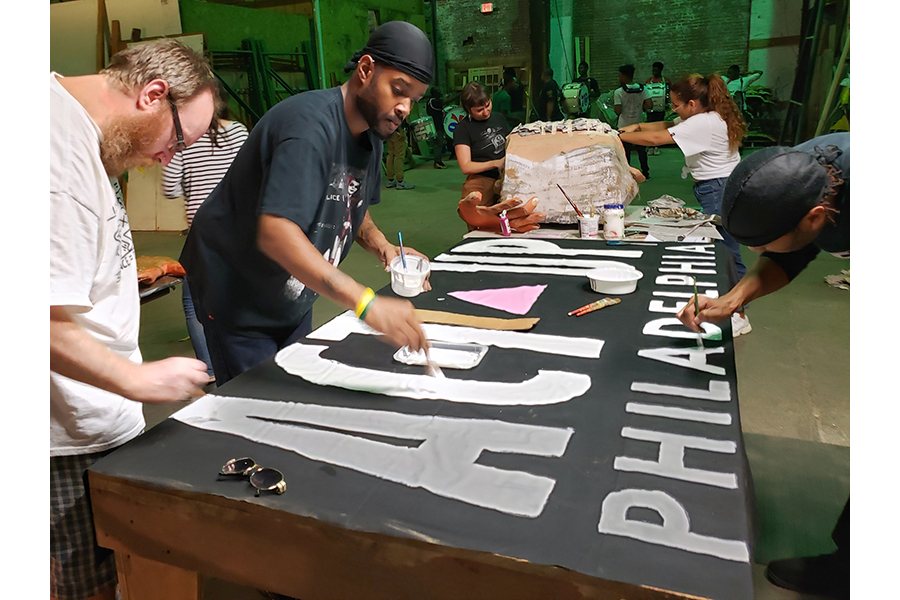ACT UP Philadelphia, a non-partisan group devoted to combatting HIV and AIDS, is sponsoring free buses to the U.S. Supreme Court on Oct. 8, when justices will hear three cases concerning whether LGBTQ people are protected from workplace discrimination under the 1964 Civil Rights Act.
Coordinated in partnership with organizations including New York City-based housing and HIV care nonprofit Housing Works and The Center for Popular Democracy, in Washington, D.C., the Philadelphia buses will depart from Broad and Walnut streets at 6 a.m. One busload of participants has already been confirmed, said ACT UP organizer José de Marco. At least two buses of rally-goers are anticipated.
“This is one of the most important decisions since the civil rights movement,” de Marco said. “I believe this is going to have such an impact on people’s lives, it’s going to have a big impact on people wanting to be tested for HIV for fear of being discriminated against for being gay.”
The court’s decisions will effectively determine whether LGBTQ folks can be fired as a result of their gender identity and sexual orientation. The 1964 Civil Rights Act prohibits workplace discrimination on the basis of race, color, religion, sex and national origin.
The crux of the rulings justices will make concerns the definition of “sex” and thereby what it extends to. In an amicus brief submitted by the Trump administration to the Supreme Court in August, the government officials argue, “The ordinary meaning of ‘sex’ is biologically male or female; it does not include sexual orientation.”
The precedent established by the Supreme Court will impact the lives of the roughly 11.3 million queer people across the country. Four judges appointed by Democratic presidents sit on the panel, opposite five instated by Republican leaders. President Trump nominated two: Justices Neil Gorsuch and Brett Kavanaugh.
“I’m hoping the judges are able to recognize that this is discrimination and they’re making it legal,” de Marco said. “I hope they have the common sense to realize instead of defining what ‘sex’ means, they have to take everything into consideration because if they don’t, this is opening up doors to all sorts of discrimination.”
One case the court will consider, R.G. & G.R. Harris Funeral Homes, Inc. v. Equal Employment Opportunity Commission, concerns whether federal law protects trans and gender-nonconforming folks from discrimination. Trans woman Aimee Stephens filed the suit after allegedly being fired from her job at a funeral home in 2013, when she began living as her authentic gender.
The other two cases revolve around whether employers can fire workers because of their sexual orientation.
In Bostock v. Clayton County, Georgia, an out gay man alleges he was terminated from his 10-year career as a child welfare services coordinator after his boss found out he joined a queer recreational sports league. Altitude Express, Inc. v. Zarda centers on a skydiving instructor who claims he was terminated after mentioning his sexual orientation to a client.
“I don’t know how many people are aware of what’s going on, but every queer person in Philadelphia or around Philadelphia that’s aware of this, if they’re able, should be in D.C.,” de Marco said, “because this is one of the most important decisions coming out of the federal government in the past 40 or 50 years. It could have a really horrible impact on the queer community if this is allowed to happen.”

